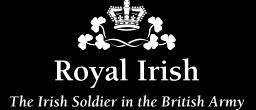108 Brigade's Objective - Ancre River - 1 July 1916

|
| 108 Brigade's Objectives. |
With its Headquarters at Hamel, Brigadier General C R Griffith's 108 Brigade, the left brigade of the 36th (Ulster) Division, was to attack astride the River Ancre into the 36th (Ulster) Division's left section and right centre section.
North of the Ancre, the 9th Battalion The Royal Irish Fusiliers (9th Faughs) and the 12th Battalion The Royal Irish Rifles (12 RIR) were to advance to their objective in the left section - Beaucourt railway station and the trenches immediately beyond it.
The Brigade Commander planned to attack the Divisional right centre section with 13 RIR on the left, 11 RIR on the right and 15 RIR (detached from 107 Brigade) in support. The Brigade's task in the right centre section was to clear the A and B lines and advance to the C line, halting and consolidating on the salient C 9, C 10, C 11, the north-east corner of the Schwaben Redoubt. A special detachment, with one Stokes mortar, one Lewis and one Vickers gun, was to act as left flank guard, to clear the communication trench from B 19 to C 12, hold the latter as a defensive post, and send a detachment to C 13 to ensure observation and fire onto the Grandcourt-St Pierre Divion Road. In addition, two officer-led patrols, each a platoon in strength, with a Lewis gun, were to reconnoitre and clear the left of the A and B lines up to St. Pierre Divion.
This was to be a complicated and ambitious brigade operation, essential to 36th (Ulster) Division's plan, conducted across open ground divided by a river feature against a determined and well prepared enemy. The bombardment was to cease at 0720 hrs and Zero Hour was set for 0730 hrs in full daylight.
North of the Ancre, 12 RIR advanced into German wire not completely cut by the artillery preparation. Many gaps were cut, but enemy machine guns killed the first rush, and now behind the supporting artillery barrage, the remnants of the battalion were twice re-formed and twice again led forward - but their attacks failed. The 9th Faughs left its trenches at 0710 hours and moved forward to wait in the shelter of a ravine. When they rose to advance at 0730 hours the Germans engaged them with murderous fire. As the men from the first wave reached Beaucourt station, the subsequent waves were mown down by the German machine guns. At 0800 hours the 36th Division was informed that the enemy on the left had retaken his front line. The fighting strength of the 9th Faughs that morning had been 600 men; the casualties were so heavy that by the end of the day just 80 rank and file would return unwounded without their officers. The 9th Faughs had lost 535 all ranks killed, wounded or missing in action.
South of the Ancre, 108 Brigade's three other battalions had advanced and they too were taking casualties with 13 RIR suffering most heavily under long range fire from the Beaucourt Redoubt on the other side of the river. They had lost most of their officers before they reached the German trenches. Many of the bombing squads tasked to clear the trenches and dugouts were killed by machine-gun fire and 15 RIR, the Brigade's supporting battalion, had to deal with enemy who emerged from uncleared dug-outs after the leading battalions had crossed the A lines. Keeping up with the creeping barrage, they took the C line, including the north-east corner of the Schwaben Redoubt, at 0848 hours. But even in occupied trenches casualties were inflicted by flanking enemy machine guns; movement from front to rear and reinforcement or resupply of water and ammunition was almost impossible. By the end of the day, 13 RIR had suffered 595 casualties.
Having withdrawn back to their own front lines, that afternoon and evening a number of officers and men of the Brigade crawled out into no man's land under continuous machine-gun and shell fire, bringing back some of the wounded and giving water to those who were dying. Lieutenant Geoffrey Cather, the Adjutant of the 9th Faughs, accompanied by the Battalion Intelligence Officer, Captain Jim Menaul and, elsewhere, Rifleman Robert Quigg from 12 RIR, performed such humane and courageous acts that their conspicuous bravery was recognised. Quigg and Cather were awarded the Victoria Cross and Menaul was awarded the Military Cross.
What happened to 107 Brigade?
What happened to 109 Brigade?









